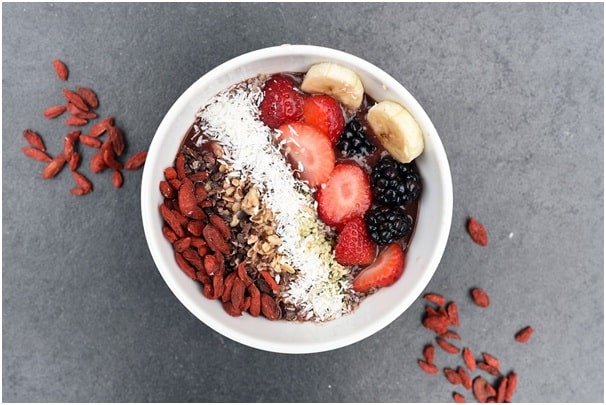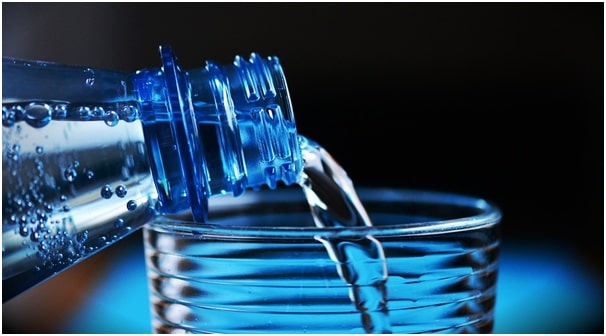
Eating habits determine the ability of your body to fight off harmful external agents. Foodstuffs provide us with calories or energy to meet the daily demands of the vital organs. If you consume more calories than you required, it appears in the form of weight gain. Hence, weight loss requires you to create a calorie deficit than the basal metabolic rate. Once you determine your basal metabolic rate, you can devise an effective diet plan to stay healthy. All you need to do is stick to the raw foodstuffs and a high-protein diet for proper health and wellness.
Here’s the method of calculating daily energy expenditure and tips to consume a healthy diet.
Recommended Calorie Intake
One of the most crucial factors that determine your health is the daily calorie intake. If you end up consuming more or fewer calories, you are likely to face health issues. Experts suggest that the average calorie intake for a male is around 2,000 to 2,500 calories. But, females need to reduce the energy intake and stick to approximately 1,800 to 2,000 calories per day. If you wish to dive deeper into the energy consumption measures, you can determine the basal metabolic rate. All you need is the body weight and height to determine the exact energy requirement of your body.
Tips to Stay Healthy

Once you determine the basal metabolic rate, you need to create a diet plan that suits your energy requirements. Every foodstuff you consume provides your body with a certain amount of calories. Before consuming the meals, try to analyze a rough estimate of the number of calories it provides. Further, you can keep the calorie intake equal to or more than the basal metabolic rate. All the people who workout, around 400 to 500 calories more than the BMR, will do the job. Some ways to stay in shape are consuming raw foodstuffs, eating a high-protein and high-fiber diet.
1. Protein-Rich Meals

If you wish to gain muscle faster, a high-protein diet is the best way. You can add more protein-rich foods to your meals for better energy and muscle healing. With the high level of proteins, your body accelerates muscle recovery and incorporates faster muscular hypertrophy. Some protein-rich foods like chicken, cottage cheese, and legumes may replenish the protein deficit in your body.
Along with this, it keeps you full and prevents overeating up to a great extent. Transform your diet to a high-protein one for maximum energy and recovery against common ailments.
2. Consume High-Fiber Diet
The nutritional values of your diet determine the functions of the vital organs. You need to stick to a high-fiber diet to improve the digestive processes. Also, fiber-rich foods contain lesser calories and curb many digestive troubles in the long run. Some foodstuffs rich in fiber are strawberries, pears, and avocados. It improves your bowel movements, may reduce cholesterol levels, and controls the blood sugar content.
3. Raw Foodstuffs
Another effective way to meet the daily calorie demands healthily is through raw foodstuffs. Instead of loading up on the oils and other fatty elements, you can include raw veggies in your diet. Also, try to consume more fruits rather than munching on unhealthy sugar-laden snacks in between your meals. All these small changes add up to create a big positive change in your overall health. Not to forget, it enhances your digestion and the nutritional reservoir of your body. Replace the mid-meal snacking habits with a bowl of raw fruits or veggies for maximum energy.
4. Stick To Unsaturated Fats
If you think that every fat is harmful to your vital functions, then you’re wrong. Healthy fats like unsaturated fats are quite essential to maintain the homeostasis of the body. It acts on the vital organs and promotes cardiac functions in the long run. You can include the foods like avocados, olives, peanuts, and sesame seeds to boost your body’s fat reservoir. Not only will it provide better nourishment, but it also curbs the accumulation of cholesterol in your blood. All these factors prevent the occurrence of cardiac diseases like atherosclerosis, ischemia, and hypertension.
5. Adequate Hydration

Often, fitness enthusiasts overlook the importance of ideal water intake on their fitness journey. Water is devoid of any calories and ensures the transportation of nutrients to the vital organs. As soon as you feel thirsty, you need to drink water without waiting for the right time. Also, drink at least 2 to 3 liters of water daily for better metabolism. It helps in normalizing the blood pressure and may take a toll on the cholesterol levels.
Regular consumption of water initiates satiety signals that keep the unhealthy snacking habits in check. Hence, it maintains adequate calorie consumption and keeps you from gaining weight.
Final Verdict
Energy requirements of your body depend upon the foodstuffs that you consume. Your daily calorie intake determines the stability of your health as well as vital functioning. If you wish to adapt to a healthy lifestyle, you must create a diet plan that suits your basal metabolic rate. Also, some healthy tips might promote your eating habits and replenish the lost nutrients. Start with consuming a high-protein diet that is low on calorie levels. Along with this, you need to stay hydrated and include unsaturated fats in your daily meals. That way, you can meet the calorie demands and achieve better health.
